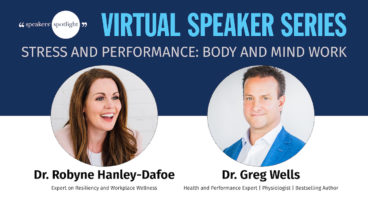Are you feeling excited about being able to attend school without masks and social bubbles? Perhaps you’re counting the days until you can attend a music festival or go travelling without worry. As we transition out of the acute phase of the pandemic, everything is looking up — right?
It may feel like all of that is behind us, and in many ways, it is. However, as we return to a world of hugs, group events, and seeing each other’s full faces in the grocery store, other issues may arise.
According to Jonny Morris, CEO of the Canadian Mental Health Association’s BC division, 40% of Canadians have experienced mental health issues during the pandemic.
This article is not here to scare you. My intention is to bring awareness to the mental health hurdles that some may experience as we return to a less physically distanced world.
Here are some things you may see in others or experience yourself in the coming weeks and months.
Hyper Sociability
Research has found that young adults and teens have been the hardest hit through social isolation and loneliness during the pandemic. Because of this, many people who’ve experienced this deep sense of loneliness and isolation may be so excited to reconnect that they are excessively social.
How to cope: Be on the lookout for your friends who choose to prioritize social interaction over other important aspects of life, such as exercise, downtime, sleep, and nutrition. If you notice yourself prioritizing social events over other things, create some rules. Perhaps you only make plans with friends two or three times a week to begin.
Social Anxiety
You can look forward to seeing your friends and still feel anxious in social situations right now. That’s normal. This long break may make returning to social gatherings extremely triggering and challenging for those who already had a bit of social anxiety before the pandemic. Social anxiety can be hard to spot because it can sometimes look like hyper social behaviour and other times like extreme introversion.
If someone is uncomfortable in social situations, they may become overly social in a group setting due to discomfort. They may talk too much or indulge in alcohol beyond the usual limit. On the other end of the spectrum, they may simply never go to social gatherings or engage or talk to anyone when they’re in group settings.
How to cope: Having some anxiety and discomfort when engaging in group activities again is perfectly normal. If, however, your anxiety about returning to work because of the social aspect causes you to avoid work, or you’re having panic attacks when you think about going to a social gathering, it’s time to seek professional help. Mindfulness practices and exercise can also be beneficial for those struggling with general anxiety related to social situations.
Germaphobia
Can you believe that there was once a time when we didn’t wash our hands? This was before we understood what germs were. Advances in medicine and science discovered “germs” and realized how they spread diseases, such as tuberculosis. In 2003, we started sneezing or coughing into our arms to prevent the spread of germs during the SARS epidemic.
As we begin to flock back to grocery stores without masks and leave tiny bottles of sanitizer at home, many among us will still be very aware of germs and nervous about the lack of precautions.
How to cope: If you’re nervous about the spreading of germs, continue wearing a mask and carrying sanitizer. Opt to get your groceries and run other errands outside of peak traffic times. Talk to your friends and relatives to make sure that those around you know your comfort levels.
If you know someone dealing with germaphobia, be compassionate and continue to observe distancing when you see them. Don’t push them to take their mask off or hug you. If you notice that their fear negatively impacts their ability to make healthy choices, suggest they speak to a professional.
An award-winning medical doctor, Dr. Shimi Kang provides science-based solutions for health, happiness, and achievement in the workplace, classroom, and at home. With 20 years of clinical experience and extensive research into the science behind optimizing human intelligence, Kang provides practical tools to cultivate the key 21st century skills of resilience, connection, creativity, and more.
Interested in learning more about Shimi and what she can bring to your next event as a keynote speaker? Email us at [email protected].




